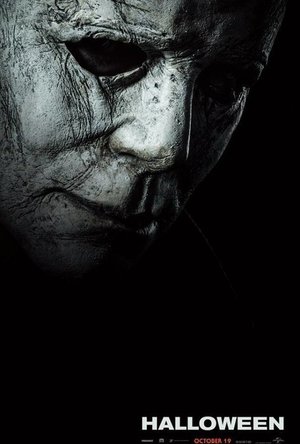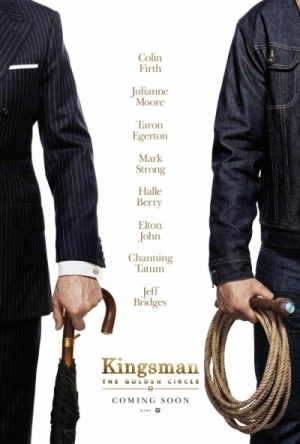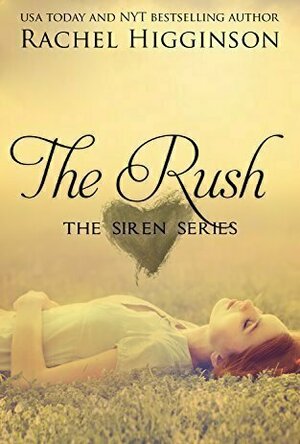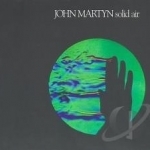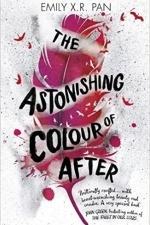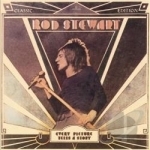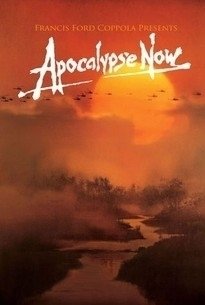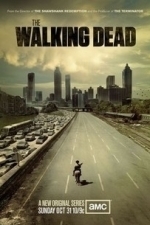Search
Search results
KyleQ (267 KP) rated Halloween (2018) in Movies
Jul 20, 2020
I wanted to like it.
Ignoring every entry other than Carpenter's original, 2018's Halloween attempts to reboot the Franchise in anew direction.
Oddly enough, comedian Danny McBride was a writer, while director David Gordon Green (Pineapple Express) directed.
I blame much of my distaste on their overhyping it. They said this would be a slower movie focused on creating suspense ala the original.
In reality, this more than tripled the body count, even surpassing Rob Zombie's remake which was 10 minutes longer.
From the get-go, Michael just wanders about killing people, at one point we just follow him walking down a street randomly killing people. This has more senseless violence then Zombie's outings.
Another thing I didn't like was that, with this only following the original in which after escaping, he killed 4 people. It doesn't make sense that he would be this popular legend still talked about 40 years later.
Also, victims are idiots, it's no shock who gets killed. Honestly, Laurie (Jamie Lee Curtis) was the only likable character, and even she pushed it a bit.
For positives, Carpenter's score was great, I liked some of the camera work. Intro credits were cool, throwing back to the original. And Curtis was good returning as Laurie Strode.
I really wanted to like 2018's Halloween, but it lacked suspense, characters were dumb, it felt more like a senseless action/comedy than horror. This would've fit the Friday the 13th franchise better. I really hope that the sequels are better.
Oddly enough, comedian Danny McBride was a writer, while director David Gordon Green (Pineapple Express) directed.
I blame much of my distaste on their overhyping it. They said this would be a slower movie focused on creating suspense ala the original.
In reality, this more than tripled the body count, even surpassing Rob Zombie's remake which was 10 minutes longer.
From the get-go, Michael just wanders about killing people, at one point we just follow him walking down a street randomly killing people. This has more senseless violence then Zombie's outings.
Another thing I didn't like was that, with this only following the original in which after escaping, he killed 4 people. It doesn't make sense that he would be this popular legend still talked about 40 years later.
Also, victims are idiots, it's no shock who gets killed. Honestly, Laurie (Jamie Lee Curtis) was the only likable character, and even she pushed it a bit.
For positives, Carpenter's score was great, I liked some of the camera work. Intro credits were cool, throwing back to the original. And Curtis was good returning as Laurie Strode.
I really wanted to like 2018's Halloween, but it lacked suspense, characters were dumb, it felt more like a senseless action/comedy than horror. This would've fit the Friday the 13th franchise better. I really hope that the sequels are better.
BobbiesDustyPages (1259 KP) rated Kingsman: The Golden Circle (2017) in Movies
Sep 27, 2017
Great mindless fun but sadly just didn't live up to the original.
I keep bouncing between a 7 and 8 rating but after some of the shit that was pulled and I'm still upset about it's getting a 7.
Okay don't get me wrong Golden Circle was a fun movie with the same over the top violence as the first one but to me it felt like parts of the movie were missing for some reason and after seeing it I found out the apparently the original cut was like 3 1/2 hours long and to me it really did feel like they left out a fair bit of the story and a hell of a lot of the character development.
But hey Elton John was fabulous and the fight scenes were fucking Ace!
Okay don't get me wrong Golden Circle was a fun movie with the same over the top violence as the first one but to me it felt like parts of the movie were missing for some reason and after seeing it I found out the apparently the original cut was like 3 1/2 hours long and to me it really did feel like they left out a fair bit of the story and a hell of a lot of the character development.
But hey Elton John was fabulous and the fight scenes were fucking Ace!
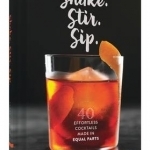
Shake. Stir. Sip.: More Than 50 Effortless Cocktails Made in Equal Parts
Book
Some of the best cocktails are the easiest to make, and author Kara Newman figured out the...
Leanne Crabtree (480 KP) rated The Rush (The Siren, #1) in Books
Jan 11, 2021
I was really unimpressed by this story. I've read several of the authors Love & Decay series and loved those but this?
I like the idea behind it but it took forever for us to know what she was despite the series title and it just didnt work for me.
A lot of things are repeated: She hates her "curse" as she calls it. She wants her inheritance so she can run away and disappear forever. She will never be like the others in her group. ETC.
The above things were rehashed so many times that i started getting bored, which is probably why it took me 4 days to read this. Even her kinda-romance with Ryder couldn't make me like this.
I won't be continuing the series
I like the idea behind it but it took forever for us to know what she was despite the series title and it just didnt work for me.
A lot of things are repeated: She hates her "curse" as she calls it. She wants her inheritance so she can run away and disappear forever. She will never be like the others in her group. ETC.
The above things were rehashed so many times that i started getting bored, which is probably why it took me 4 days to read this. Even her kinda-romance with Ryder couldn't make me like this.
I won't be continuing the series
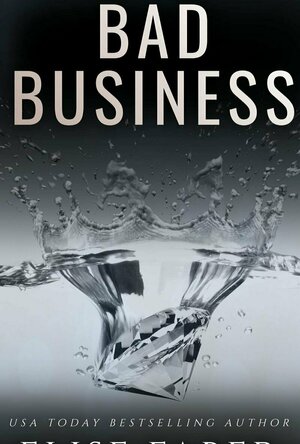
Bad Business (Billionaire's Club #17)
Book
I was a single dad. I didn’t have time for love. When I found out I had a son, my life changed...
Contemporary Romance RomCom Romantic Comedy
Beth Orton recommended Solid Air by John Martyn in Music (curated)
Haley Mathiot (9 KP) rated The Astonishing Color of After in Books
Apr 27, 2018
*some minor spoilers
I was compelled to finish this book, despite not loving it... and There were some things about this book that really irritated me.
First, I really didn't like the characters. Kinda hard to love the book when you don't like the characters.
The mom, Dory, I could relate to. Depression is a dangerous disease that steals your body and your life.
The dad was a horrible person... rude, disrespectful, unthoughtful, and uncaring about his daughter and her passions. Maybe I'm biased because I love art, but who in their right mind tells their kid to stop doing art.
And then, at the end, when suddenly he is encouraging her that she has a gift and that her mom would be proud? Like, okay, mom dies and suddenly you're not an asshole anymore? What?
There were a lot of flashbacks, and memories, and not a whole lot of plot. I think it could have been spread better. There were whole sections where she was just having flashbacks and it was annoying.
The romance aspect was somewhat uncomfortable... like it was too much of a struggle for Pan to write it. It didn't flow well. Maybe that was the point. To be awkward.
It got a little better near the end and I was like : (insert "now kiss" meme here)
I kind of expected Phon (spelling? I listened to the audiobook) to be her aunt, so that wasn't much of a surprise. But the reveal was fun and clever.
The writing was beautiful, and the color aspect was interesting. Like I said, I felt compelled to finish it, but I found myself irritated while I was listening.
I did relate to the author's note about re-writing her novel multiple times though...
And the end of the book felt good... I had a feeling all Lee's visions would become her final series of art, and I'm happy with it.
Recommend to ages 13+. Very little language.
I was compelled to finish this book, despite not loving it... and There were some things about this book that really irritated me.
First, I really didn't like the characters. Kinda hard to love the book when you don't like the characters.
The mom, Dory, I could relate to. Depression is a dangerous disease that steals your body and your life.
The dad was a horrible person... rude, disrespectful, unthoughtful, and uncaring about his daughter and her passions. Maybe I'm biased because I love art, but who in their right mind tells their kid to stop doing art.
And then, at the end, when suddenly he is encouraging her that she has a gift and that her mom would be proud? Like, okay, mom dies and suddenly you're not an asshole anymore? What?
There were a lot of flashbacks, and memories, and not a whole lot of plot. I think it could have been spread better. There were whole sections where she was just having flashbacks and it was annoying.
The romance aspect was somewhat uncomfortable... like it was too much of a struggle for Pan to write it. It didn't flow well. Maybe that was the point. To be awkward.
It got a little better near the end and I was like : (insert "now kiss" meme here)
I kind of expected Phon (spelling? I listened to the audiobook) to be her aunt, so that wasn't much of a surprise. But the reveal was fun and clever.
The writing was beautiful, and the color aspect was interesting. Like I said, I felt compelled to finish it, but I found myself irritated while I was listening.
I did relate to the author's note about re-writing her novel multiple times though...
And the end of the book felt good... I had a feeling all Lee's visions would become her final series of art, and I'm happy with it.
Recommend to ages 13+. Very little language.
Joe Elliott recommended Every Picture Tells a Story by Rod Stewart in Music (curated)
Henry Rollins recommended Apocalypse Now (1979) in Movies (curated)
Jamie (131 KP) rated The Walking Dead - Season 1 in TV
Jul 15, 2017
Gripping story (2 more)
Casting for the main characters was good
Dixon brothers are a great addition to the story
Bad special effects (2 more)
Characters actions sometimes don't make a lot of sense
A lot of filler characters and plot lines
Zombies in Atlanta
As a long time fan of The Walking Dead, including the comics, the books, and the video games, the television series did alright. I liked the casting for the main characters, much of the main story was kept loyal to the source material, and there were a few new characters and surprises added to the show.
There are a lot of new characters added to the story, the highlights being Daryl and Merle Dixon. The rest were easily forgettable and felt like filler characters to feed to the meat grinder to get a reaction out of audiences. This was sort of a negative to me because I would hardly have a chance to like or care about these new characters before they were killed off. This makes character deaths in the series have a little less impact.
The story deviates from the comics in both good and bad ways. I liked that a few character arcs were switched around to keep the story fresh for folks that have already read the comics. I liked that one of my least favorite characters from the comics, Carol, was changed in a way that makes her character more compelling.
My only other complaint would be the filler. It seemed like the story kept getting off track and moving away from the main conflict (Rick and Shane) pretty often, which makes the story feel sloppy. I don't know if it's just me, but I just didn't like the story arc with the CDC. It was promising and was interesting at first, but it became predictable pretty quickly and everything about it was just too ridiculous to me. The special effects were bad and it just made little to no sense the way it happened.
I wanted to like this first season more and be blown away but overall it was okay/good to me. I think it sets things up well and piqued my interest enough to continue to the next season. For zombie fans, it's definitely a series worth checking out. For those already well acquainted with the story via the comics, don't expect a faithful adaptation and be prepared for the usual tv tropes and silly plot filler.
There are a lot of new characters added to the story, the highlights being Daryl and Merle Dixon. The rest were easily forgettable and felt like filler characters to feed to the meat grinder to get a reaction out of audiences. This was sort of a negative to me because I would hardly have a chance to like or care about these new characters before they were killed off. This makes character deaths in the series have a little less impact.
The story deviates from the comics in both good and bad ways. I liked that a few character arcs were switched around to keep the story fresh for folks that have already read the comics. I liked that one of my least favorite characters from the comics, Carol, was changed in a way that makes her character more compelling.
My only other complaint would be the filler. It seemed like the story kept getting off track and moving away from the main conflict (Rick and Shane) pretty often, which makes the story feel sloppy. I don't know if it's just me, but I just didn't like the story arc with the CDC. It was promising and was interesting at first, but it became predictable pretty quickly and everything about it was just too ridiculous to me. The special effects were bad and it just made little to no sense the way it happened.
I wanted to like this first season more and be blown away but overall it was okay/good to me. I think it sets things up well and piqued my interest enough to continue to the next season. For zombie fans, it's definitely a series worth checking out. For those already well acquainted with the story via the comics, don't expect a faithful adaptation and be prepared for the usual tv tropes and silly plot filler.
